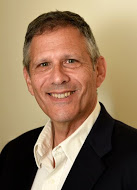[Opinion] Advancing leftist agenda, online mag +972 serves to strengthen Israel haters

![]()
Last week Israelis awoke to the tragic news that two Israel Air Force helicopter pilots were killed in a training accident. This was a sorrowful moment, another reminder of the high price some of our sons and daughters pay for defending against the likes of Hamas or Hezbollah.
For one Israeli, however, the news could not have been better. Noa Shaindlinger, who frequently appears in +972 magazine, wrote on her Facebook page, “We may have some good news later this morning (hint: IOF accident with casualties).” When a fellow activist criticized her joy over the pilots’ deaths, Shaindlinger shot back, “I will worry about nonsense like my ‘humanity’ afterwards, when the struggle will end successfully. Till then, I will be happy when my enemies fall.” Shaindlinger’s “enemies” are Israeli soldiers.
Shaindlinger is an activist with Zochrot, a fringe anti-Zionist Israeli NGO (nongovernmental organization) that supports the Palestinian use of the word “nakba” (Arabic for catastrophe) to reject Israel’s legitimacy and to support the “right of return.” +972 published a positive review of Zochrot’s publication “Once Upon a Land,” a tour book of “Palestinian neighborhoods and villages whose inhabitants were expelled by Israel during the Nakba.”
J. editor Sue Fishkoff interviewed +972 magazine’s CEO Noam Sheizaf on a recent Bay Area fundraising tour. She described +972’s political slant as “leftist,” committed to “human rights and freedom” and “opposed to the occupation of the West Bank.” The issue, however, is not about constructive criticism of Israelis policies, but +972’s involvement in the Durban strategy to demonize and delegitimize Israel.
+972’s problems are much wider than providing a platform for Shaindlinger, particularly outside of Israel where this NGO has its primary impact. Sheizaf himself has written in opposition to efforts to counter “Israel Apartheid Week,” which anti-Israel activists promote on campuses worldwide as part of their political war against Israel. IAW is a component of the boycott, divestment and sanctions campaign, the core strategy that emerged from the NGO forum of the United Nation’s 2001 World Conference Against Racism in Durban, South Africa. Some 1,500 NGOs labeled Israel as “a racist, apartheid state” and called for “the imposition of mandatory and comprehensive sanctions and embargoes, the full cessation of all links … between all states and Israel.”
Indeed, in the Nation of Feb. 12, 2012, Sheizaf referred to Jerusalem as an “apartheid city.”
Writing in +972, Uri Horesh defended a 2012 BDS event held at the University of Pennsylvania against criticism by what he dismissed as “local Jewish-Zionist circles.” He also defended Ali Abunimah, the conference’s keynote speaker who heads Electronic Intifada and is a leader of hate-filled anti-Israel events on North American campuses. A frequent +972 writer, Itamar Mann, wrote glowingly of the 2012 “One-State Conference” at Harvard — an event that sought to justify the elimination of Israel.
Among +972’s funders are the New Israel Fund ($60,000 in 2012) and the Heinrich Böll Stiftung, a think tank affiliated with Germany’s Green Party, which provided +972 with $7,700. These funds enable +972 to greatly expand its marketing efforts and ideological impact. But, ironically, not in Israel.
+972 is published in English, not Hebrew. Sheizaf claims that 40 percent of its readers are in the U.S., with many in the Arab world. (These claims, like those of all NGOs, need to be independently verified.) If so, who is +972’s target audience? How does an English-language site impact discourse in Israel? Or is the purpose to bring international opprobrium upon Israel and help a tiny fringe group override the democratic process and the Israeli people’s electoral choices?
Before my aliyah two years ago, I worked at the San Francisco–based Jewish Community Relations Council, where I helped implement the local Jewish community’s strategy to counteract the anti-Israel activities of scores of Bay Area groups active in mainline churches, labor unions, city councils, public schools and campuses. The Jewish community, through its many institutions — JCRCs, federations, Hillels, synagogues — expends vital and finite resources to combat the BDS movement and its many activities, such as “Israel Apartheid Week.”
Instead of helping to defeat this political assault, +972 does the opposite. It undermines the Jewish community’s efforts by legitimizing Israel’s delegitimizers, and it unnecessarily complicates the hard work of the broad spectrum of Israel’s supporters.
Yitzhak Santis is chief programs officer at the Jerusalem-based NGO Monitor. He is a former Bay Area resident who made aliyah in 2011.
After this column was published, the editor of J.Weekly informed NGO Monitor that +972 had appropriately dropped ties with Ms. Shaindlinger in January, although the group’s website does not contain any indication of such a ban, and her articles remain as posted. As a very visible political organization, +972 should insure that this ban be clearly stated on its website and social media platforms.
